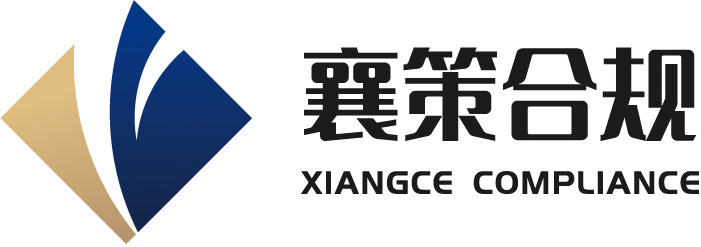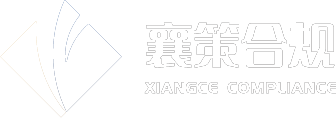Foreign Investment in Fixed Assets in China: Strategic and Operational Guidelines 外资在华固定资产投资:战略与操作指南
录入编辑:襄策合规 | 发布时间:2025-09-121. Investment Overview / 投资概述
Foreign investors seeking to establish factories, warehouses, or acquire high-value equipment in China face a multi-layered regulatory and operational environment. The investment framework balances legal compliance with strategic efficiency, aiming to protect both the investor and the host market. Understanding the sequence and rationale of each regulatory step is essential for successful and sustainable investment.
外国投资者在中国建立厂房、仓储设施或购置高价值设备时,需要应对多层次的监管和操作环境。投资框架兼顾法律合规与战略效率,旨在保护投资者和所在市场。理解每一步监管流程的逻辑与战略意义,对实现成功和可持续投资至关重要。
2. Stepwise Compliance and Strategic Rationale / 分步合规及战略分析
2.1 Industry Access Review / 行业准入审查
Before any formal investment, the investor must verify whether the intended industry allows foreign participation. This includes consulting the Negative List and determining if the project falls under restricted or sensitive categories. For high-value fixed asset investment, such as heavy equipment manufacturing or industrial parks, early industry approval ensures regulatory certainty and avoids delays.
在任何正式投资前,投资者需确认目标行业是否允许外资进入,包括查阅《负面清单》,并判断项目是否属于限制或敏感类。对于高价值固定资产投资,如重型设备制造或工业园区投资,提前行业审批可确保政策确定性,避免后续延误。
2.2 Company Registration / 公司注册
Once industry access is cleared, the investor chooses an appropriate corporate structure: Wholly Foreign-Owned Enterprise (WOFE), Joint Venture (JV), or Equity Participation. Registration at the local Administration for Market Regulation (AMR) is mandatory to obtain a business license. This step formalizes the entity as a legal actor in China, allowing it to open bank accounts, hire employees, and enter into contracts.
行业准入确认后,投资者需选择企业形式:外商独资企业(WOFE)、中外合资企业(JV)或股权投资企业,并在当地市场监管局(AMR)注册获取营业执照。这一步使企业成为中国法律上的独立主体,能够开设银行账户、雇佣员工并签署合同。
2.3 Tax Registration / 税务登记
After obtaining a business license, the company must register with the local tax authorities for corporate income tax and value-added tax (VAT). VAT registration is particularly important for fixed asset imports, enabling tax deductions and compliance with local incentives.
取得营业执照后,公司需在地方税务局登记企业所得税及增值税。增值税登记对固定资产进口尤其重要,可用于税收抵扣并符合地方政策激励。
2.4 Foreign Exchange and Capital Remittance / 外汇及资金汇入
Capital must be remitted via legal banking channels and registered with the State Administration of Foreign Exchange (SAFE). For fixed asset investment, large payments to acquire land, construct factories, or import equipment require formal documentation including contracts, invoices, and remittance proofs. This ensures capital compliance and avoids regulatory scrutiny.
资金必须通过合法银行渠道汇入,并在国家外汇管理局(SAFE)进行登记。固定资产投资涉及土地购置、厂房建设及设备进口的大额支付,需保留合同、发票及汇款凭证,以确保资金合规并避免监管风险。
2.5 Fixed Asset Acquisition and Construction / 固定资产购置与建设
With capital in place, investors can acquire or lease industrial land and begin construction. This step requires obtaining construction permits, environmental approvals, fire safety certifications, and occupational safety compliance. Equipment procurement, particularly imported machinery, must comply with customs regulations, import licenses, and applicable certifications. Strategic planning here reduces future operational risk and ensures smooth project execution.
资金到位后,投资者可以购置或租赁工业用地并开展建设。这一步需取得施工许可、环保审批、消防及职业安全认证。设备采购,尤其是进口机械,需符合海关、进口许可及相关认证要求。提前规划可降低未来运营风险,确保项目顺利执行。
2.6 Operational Compliance and Expansion / 日常经营与后续合规
Once assets are operational, companies must maintain tax filings, asset depreciation schedules, SAFE reporting, and annual audits. Expansion or new projects follow the same regulatory sequence. Continuous monitoring of environmental, labor, and safety compliance ensures sustainable operations and protects the company from fines or operational disruptions.
资产投入运营后,公司需保持税务申报、资产折旧、外汇报表及年度审计。扩建或新项目仍需遵循相同的监管流程。持续关注环保、劳动及安全合规,可保障运营可持续性,避免罚款或业务中断。
3. Strategic Tips for Investors / 投资策略与实操建议
Pre-investment Feasibility and Due Diligence : Understand regulatory environment, market dynamics, and local incentives.
Transparent Capital Management : Ensure all capital flows comply with SAFE and keep thorough documentation.
Leverage Industrial Park Incentives: Reduce costs and approval time by selecting high-tech or industrial park locations.
Professional Advisory Support : Use law firms, accounting firms, and consultants to navigate complex regulations efficiently.
投资前尽职调查:了解监管环境、市场动态及地方政策激励。
资金透明化管理:确保所有资金流符合外汇管理规定,保留完整凭证。
利用园区政策红利:选择高新技术园区或工业园区,可降低成本并加快审批。
专业机构支持:聘请律所、会计事务所及顾问,高效应对复杂法规。
4. Summary / 总结
Investing in fixed assets in China requires a structured and sequential approach, beginning with company registration, tax and foreign exchange compliance, followed by project pre-approvals, construction permits, equipment procurement, and ongoing operational compliance. Each step not only ensures legal adherence but also mitigates operational risks and aligns the investment with China’s industrial policies. For foreign investors, careful planning, documentation, and professional advisory support are critical to achieving sustainable growth and long-term success in the Chinese market.
在中国进行固定资产投资,需要采取结构化、分步骤的操作流程:从公司注册、税务及外汇合规,到项目前置审批、建设许可、设备采购,再到日常运营及扩建审批。每一步不仅确保法律合规,还能降低运营风险,使投资与中国产业政策保持一致。对于外资投资者而言,周密的规划、完整的文件管理及专业顾问支持,是实现可持续增长和长期成功的关键。





